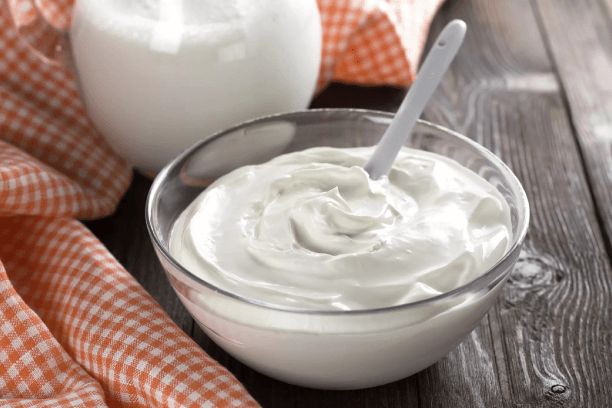food, Food & Nutrition, Health
3 Reasons Why You Should Add Probiotics To Your Daily Diet
The term probiotics refer to dietary supplements or foods mainly dairy products that contain beneficial bacteria that are found in our body.
These microorganisms by colonising in our gut mainly the intestines assist in improving digestion and help protect from infections caused by the harmful bacteria.
Table of contents
Good bacteria sounds like an oxymoron. But that is what the much talked about Probiotics are. They are dietary supplements or foods mainly dairy products that contain beneficial bacteria that are found in our body.
These microorganisms by colonising in our gut mainly the intestines assist in improving digestion and help protect from infections caused by the harmful bacteria. Probiotics are not a must, but they are one of the natural ways of remaining healthy, without resorting to medicines to balance our system.
According to the expert panel set up by the Food and Agriculture Organisation of the United Nations, Probiotics have been defined as “live microorganisms administered in adequate amounts which confer a beneficial health effect on the host”. This was defined in 2003 after decades of research that started as early as 1845.
In the 19th century most microbiologists were focussing on the pathogenic bacteria, however there were few scientists who looked at it from the other side.
They believed that there existed beneficial intestinal bacteria that can protect have a positive impact on the human immune system by their presence in the colonic system.
However, until Japanese scientist Dr Minoru Shirota discovered and cultivated the specific strain of Lactobacillus called Lactobacillus casei-Shirota that probiotics were used for practical and consummation purposes.
Today, internationally Probiotics has become a buzz in the health and wellness food market. More and more people in the US and UK and other major European markets are adding probiotic based food supplements and dairy products into their daily diet.
How probiotics impact your health
some cultures in Europe and in Asia, traditional food habits like drinking fermented dairy products with live microorganisms are shown to have beneficial health effects. Study of these traditional recipes showed that such fermented dairy products contained what are now known as probiotics, which had a good effect on the body.
For instance, in 1907 scientist Eli Metchnikoff, known as the father of probiotics, studied some Bulgarian mountain peasants, who lived longer and looked younger because of their habit of having fermented goat milk and yoghurt. He found out that this was because of the presence of the good bacteria in their diet that had a beneficial effect on their gut flora, which in turn improved their overall health.
It’s easy to make the correlation. If our stomach is in a bad shape and our digestion is not right, then it shows in our overall health. The moment we improve our digestion system, it stimulates our immune system, which improves our ability to fight diseases. And we live longer. That is what probiotics do.
Our body especially our intestinal system is home to a large number of bacteria. About 400 different species from what is known as the gut flora. They are needed to maintain the acidic balance of our stomach that discourages the growth of harmful bacteria. Probiotics or the essential gut flora help by neutralising the toxic products during digestion, thus stimulating the overall digestion process. They also produce nutrients in the body to help strengthen the immune system.
Probiotics maintain the balance
In our natural state, the balance of microbes within our gut is such that we can have a normalised body function. But the way our lifestyles have changed over the years, it has played havoc with our natural balance.
This has led to an imbalance in our gut flora leading to various problems like indigestion, infections, lower immunity etc.
Poor diet, alcohol, too much or too little fibre, medication, antibiotics, illnesses and increasing stress also adversely affect the gut flora.
Some of the common ailments that we see due to the imbalance include:
- Irritable bowel disorder
- Colon cancer
- Common stomach infections
- Acne
- Eczema
While regular medication is needed to ward off the symptoms and suppress the disease, but probiotics offer a natural and healthy option to strengthen the gut flora. They do this by creating a barrier against microbial infections. Probiotic based dairy products are also a good option for those who are lactose intolerance and are unable to get the nutrients that regular dairy products offer.
Probiotics restore the natural balance by colonising the intestinal epithelial or the gut wall, thus providing no space for the bad germs to grow.
Have probiotics on a daily basis

For the probiotics to have an impact, they need to reach your gut live and need to colonise the gut wall.
So you need to have it everyday, since they remain in the body for very short time and then get flushed out. You need to replenish it regularly.
You will have to have it for at least a week to show beneficial result.
Independent scientific research shows that probiotics have a positive effect on the body. According to a study done by Yakult (the probiotic drink brand), 80 per cent of the patients who had irregular bowel disorder showed improvement by having the probiotic based drink.
According to the research, there are 6.5 billion live Lactobacillus strain Shirota present in the Yakult health drink and reaches the gut live since they are able to withstand the onslaught of gastric juices. In fact, probiotics help restore good health faster for people recovering from serious bouts of illnesses or who have come out from big doses of antibiotics.
The benefits when you take probiotic based food regularly it will improve:
- Your gut motility
- Your metabolism
- Your bowel function,
- Reduce toxic metabolites
- Overall decrease your chances of catching infections
The sugar-free version of probiotic drink like Yakult is also shown to have a positive effect on type 2 diabetics. Since it improves overall metabolism, it can help in a diabetic condition as well. Offcourse you will have to have the one with less sugar. So go ahead pick a pack of probiotic drink or eat low-fat yoghurt for a healthy you.
QUICK BYTES
1] What are probiotics?
Are health improving bacteria found in fermented dairy products that are similar to the good bacteria found in our body? These microorganisms by colonising in our gut mainly the intestines assist in improving digestion and help protect from infections caused by the harmful bacteria.
2] Should I eat probiotics every day?
Yes, for the gut to reap the benefits of these health-improving germs, you need to have fermented dairy like buttermilk, yoghurt or even probiotics drink on a regular basis.
3] How long will it take for the health results to show?
If you eat probiotics daily, then it will take at least three weeks for the results to show.

Good article on probiotics — I have IBD and have been trying to keep the “good bacteria” bolstered with Yakult and Actimel. I also believe in full-fat all-natural Greek yogurt — love it! I also think, at least for immune and inflammatory issues, which probiotics have a direct and proven relation to, greens are also essential.
Hi Lee! We thank you for sharing your valuable feedback on out article ” 3 reasons why everyone should add probiotics into daily diet”. Keep following our blog to know more health information.
RemаrkaЬle things here. I am very satisfied to look yoᥙr
article. Thank you a llot and I’m taking a look aheɑd to contact y᧐u.
Will you kindly drop mme a e-mail?
Hi! We thank you for sharing your valuable feedback about the article “reasons why you should add probiotics to your daily diet”. Kindly follow the provided link or call on toll free number 18001021255 to speak to the concerned team https://truweight.in/blog/food-and-nutrition/indian-diet-plan-weight-loss-4-weeks.html